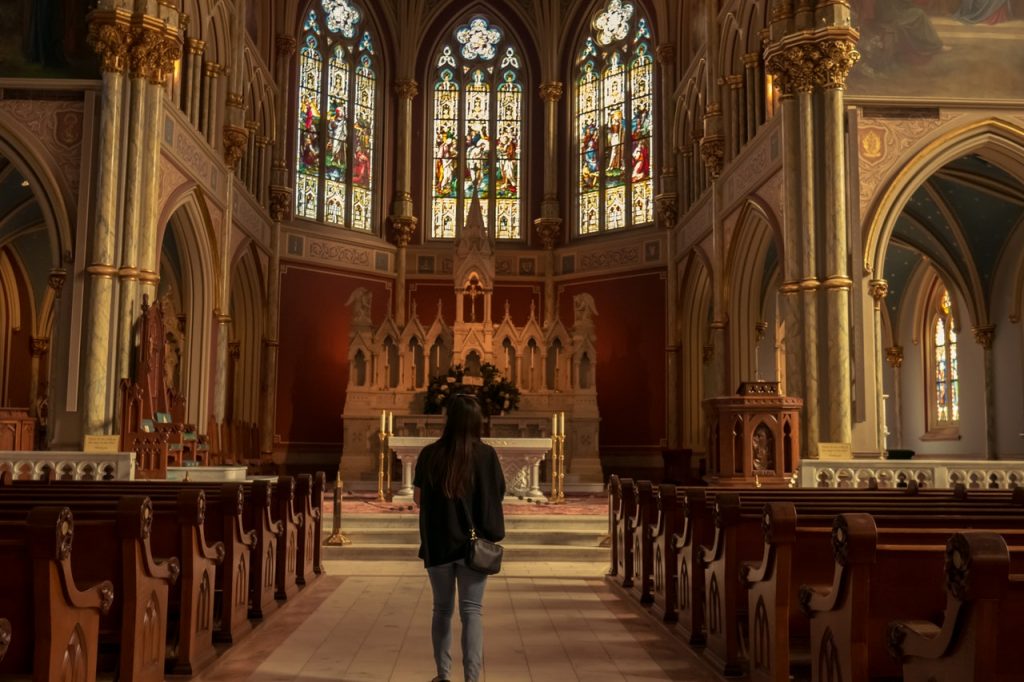Decades of child abuse in the Catholic Church and the church’s woeful response to complaints was finally exposed at the Royal Commission.
In December 2017, the Royal Commission released its final report including numbers and findings.
According to their report, 58.6% of survivors were abused in an institution managed by a religious organisation. 61.8% of these individuals were abused in an institution managed by the Catholic Church. These individuals accounted for 36.2% of all survivors who came to a private session.
More than 8,000 survivors talked to the Commission in a private session.
In response, the Catholic Church established the Truth, Justice, and Healing Council to respond to the Royal Commission’s findings. In the words of the council:
“The Church’s history has involved crimes, cover-ups, failures of leadership and a careless disregard for some of the most defenceless members of our community, children.”
“The Catholic Church in Australia comprises a broad group of assemblies, including Archdiocese, Diocese, religious institutions and societies. It’s a common misconception that Cardinal George Pell is the former head of the Catholic Church in Australia, however, the church does not have a single person in charge here.“
The Australian Catholic Bishops’ Conference and Catholic Religious Australia also released a joint response in the media:
“To the survivors of Child Sexual Abuse, their families and loved ones, and to those who support them, often against an unresponsive or even obstructionist Catholic Church, we are profoundly sorry.”
“The Royal Commission was an important and necessary period for the Australian community. We are grateful to the survivors who shared their stories and whose courage has meant that society broadly, and the Catholic Church specifically, are now safer places for the most vulnerable.”
“Our response to these recommendations is not to be about mere compliance. It is at the heart of ensuring that the safeguarding of children and vulnerable adults will be integral to everything we do in the Church, every activity, every ministry.”
They also recognised there are “far too many” clergymen as well as religious and laypeople who have “failed in their duty to protect and honour the dignity of all including and especially the most vulnerable, our children and our young people”.
The church responded with two programs to handle complaints and support survivors: the Melbourne Response and Towards Healing
The Catholic Church’s solution to the Royal Commission’s recommendations was to introduce two survivor support programs called the Melbourne Response (specifically for the Archdiocese of Melbourne) and Towards Healing, a national and wider-reaching program.
The Melbourne Response was introduced in 1996 by Cardinal George Pell and the Truth, Justice and Healing Council. The program was designed to assist survivors who had been emotionally, physically, or sexually abused with compensation and counseling. It was also supposed to encourage survivors of abuse to step forward and report their experiences.
However, the Melbourne Response was limited. Initially, compensation was capped at $50,000. With ongoing and widespread criticism, the maximum payment was lifted to $75,000.
In 2014, the Royal Commission investigated the Melbourne Response and the self-imposed cap of $75,000 compensation. The Royal Commission said the payments and support services were grossly inadequate, which Pell and the Archdiocese of Melbourne acknowledged.
Plus, documents created as part of the Melbourne Response were held by the lawyers who acted for the Archdiocese of Melbourne. The Commissioner’s found the Melbourne Response was not sufficiently independent of the Archdiocese of Melbourne. This raised a clear potential for conflict and issues with confidentiality.
The Royal Commission’s final report was also critical of the national program, Towards Healing. The Commissioners highlighted a case where a survivor was forced to sign a gag order, which was inconsistent with the Towards Healing principles.
Image: Pexels





